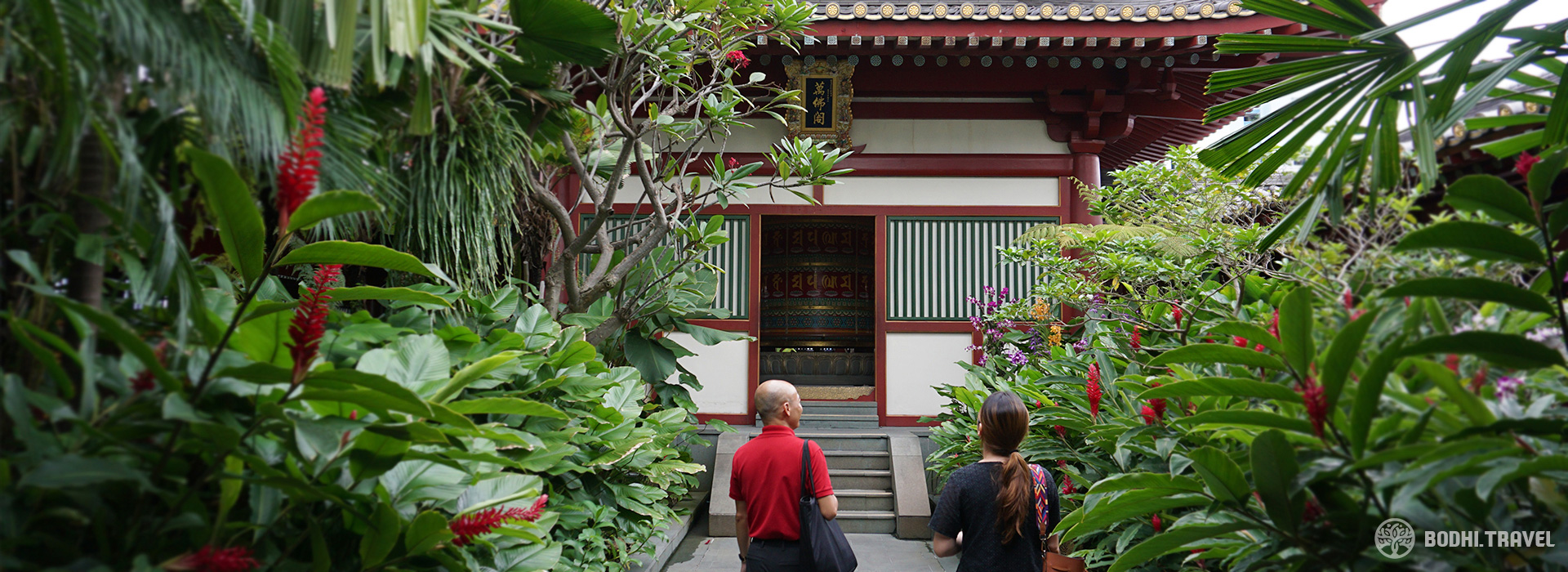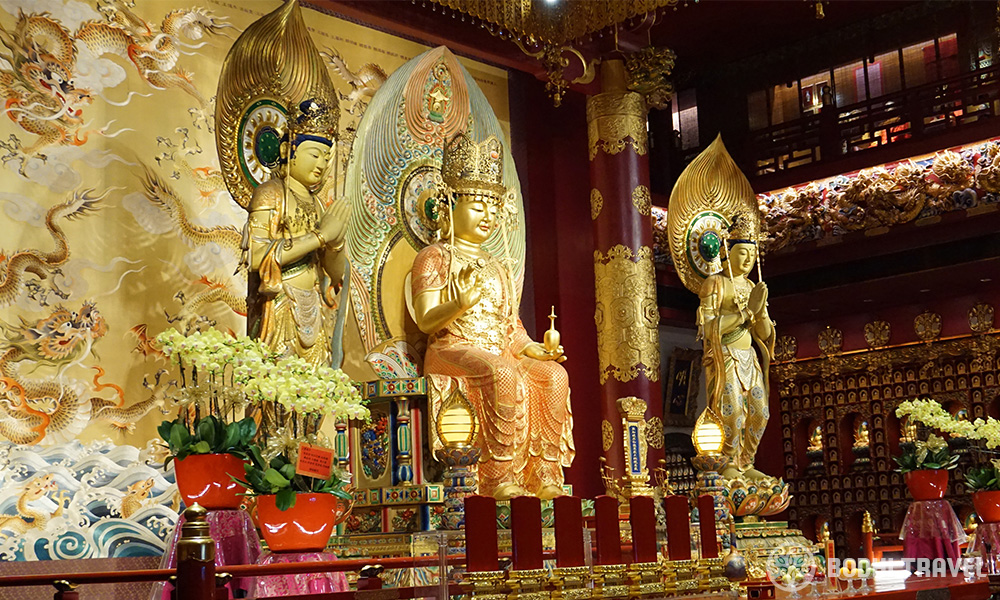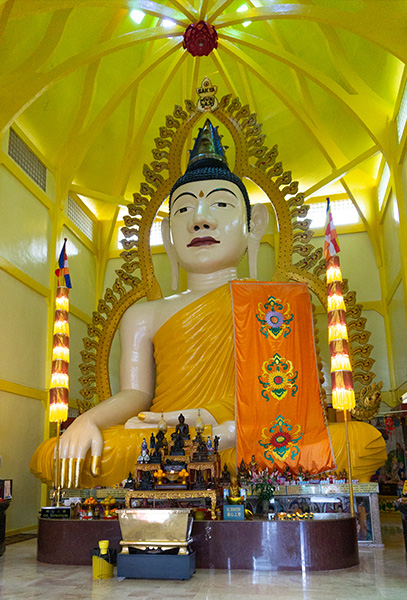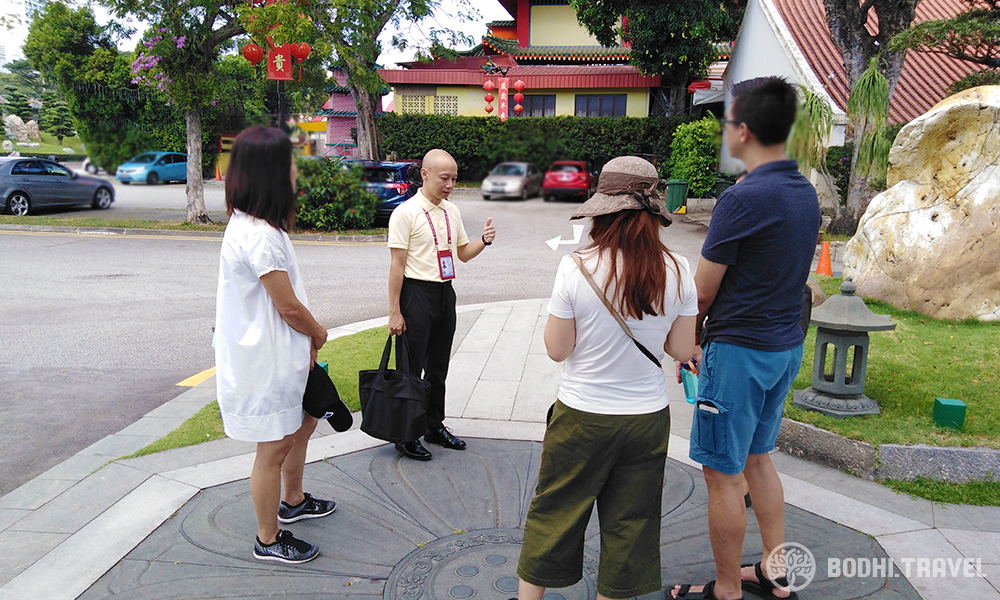
A Brief History of SG Buddhism
PK - Posted on February 27, 2019 - 23,339 Views
Buddhism is the most popular religion in Singapore with about 33% of the local residents identifying themselves as Buddhists. Buddhist history in Singapore began shortly after the British established Singapore as a colony and trading post. In need for migrant workers and traders, the British introduced measures and policies which attracted people from Southeast Asia, South Asia and China to seek employment in Singapore and the region.
Singapore’s importance as a trading centre and transportation hub also attracted prominent Buddhist monks (from both the Chinese Mahayana and the Theravada order) to Singapore for various reasons, including transit en route to Buddhist holy places (Ceylon, India), providing spiritual services, teaching tours or fund raising etc.

Chinese Mahayana
The bulk of the Chinese immigrants came from the southern Chinese coastal provinces of Fujian and Guangdong during the 19th century. The immigrants brought with them their cultures, religious beliefs and practices. They constructed the Thian Hock Temple along Telok Ayer Road in 1842 to give thanks to Ma Zu - the Goddess of the Seas for their safe voyages from China to Singapore. Following the growth of the Chinese community in Singapore, Buddhist monks and practitioners also started to arrive and gather in Singapore.
The pioneering Chinese monks were instrumental in the establishment of the Lian Shan Shuang Lin Monastery (1909), the Kong Meng San Phor Kark See Monastery (1921), the Leong San Si (1917) and the Phor Toh See (1909).
Important lay Buddhist associations - the Chinese Buddhist Association (1927) and the Singapore Buddhist Lodge (1934) - were also set up to promote Buddhist activities such as chanting and Buddhist lessons.
In Singapore, as the majority of the Buddhists are Chinese, their Buddhist practices are sometimes intertwined with the practices of another Chinese religion - Taoism. It is very common for Singapore Buddhists to perform Taoist practices and rituals, given the syncretic nature in which both Buddhism and Taoism co-exist in China. This can be reflected in the many Taoist temples in Singapore which will showcase Buddhist figures as well.

Theravada
Similar to the Chinese immigrants, Singapore attracted immigrants from Theravada countries of Siam, Ceylon and Burma. The Theravada monks also followed their devotees to Singapore to offer spiritual support and also to organise Buddhist activities.
The Wat Ananda Metyarama Temple was the first Thai Buddhist temple to be set up in Singapore in 1925. Over the years, new structures were added to the temple compounds with a new building (housing monks abode, Dhamma Hall, Meditation Hall, cultural centre, dining hall and rest area) opened in 2014.
The Sakya Muni Buddha Gaya Temple along Race Course Road was financed by the famous Aw brothers who came from Burma. This was probably the reason why the Temple, built in 1931, had a Burmese architectural style. The only Burmese Buddhist Temple (1875 established) was built in 1990 to serve the community in Singapore and is located at Tai Gin Road.
The Sri Lankaramaya Buddhist Temple is the primary Sinhalese Buddhist temple in Singapore and was constructed in 1949. Located along St Michael’s Road, the Temple is located in sprawling grounds with a huge Reclining Buddha statue.
Vajrayana
Compared to the Chinese Mahayana and Theravada traditions, the Vajrayana practitioners were relatively latecomers to Singapore. Since the 1980s, there were visible trends of increasing beliefs and practices in Vajrayana practice since the 1980s. Today, Vajrayana Buddhist practice is firmly entrenched in Singapore with the major schools in Vajrayana Buddhism represented in Singapore - the Amitabha Buddhist Centre (Gelupa tradition), the Karma Kagyud Buddhist Centre (Kagyulpa tradition), the Singapore Buddha Sasana Society (Sakyapa tradition) and Palyul Buddhist Centre (Nyingmapa tradition).
Buddhism Today
Buddhism today in Singapore is vibrant with the major schools and traditions being represented and followed in Singapore. With no indigenous Buddhist practices in Singapore, Singaporeans are generally open and respectful to all Buddhist traditions (including Japanese Buddhism, Korean Buddhism, Vietnamese Buddhism, Taiwanese Buddhism). It is not uncommon for the same Buddhist to attend talks and participate religious practices in all three traditions!
There are hundreds of Buddhist temples, societies, organisations and also firms providing Buddhist related activities/services. Together they serve the spiritual needs of the local Buddhist community and also provide social support to the wider community in Singapore and the world. There are various schools, welfare associations, nursing homes, family/community services centres, libraries and even a hospital established and supported by the Buddhist community.
Buddhist Events
There are many Buddhist themed events in Singapore throughout the year but the biggest Buddhist celebrations will be the Vesak Day celebrations in May. Different temples and organisations also organise smaller scaled activities throughout the year - including Dharma talks, meditation retreats, conferences, musicals, performances, festivals.
Buddhist Artefacts
With so many Buddhist temples and organisations, it is natural that there are Buddhist artefacts being collected or donated at certain places. Some temples, due to their long history, have collections that grew over the decades. Two popular places to visit for Buddhist artefacts in Singapore are the Buddha Tooth Relic Temple and Museum and the Asian Civilisation Museum.

Bodhi Travel has a regular Singapore Buddhism Tour for visitors interested to learn more about Buddhism in Singapore.
For those interested in Vesak celebrations, please join our special Singapore Vesak Eve Tour where our tourist guides will be bringing you to Kong Meng San Phor Kark See Temple and explain the meaning and significance of Vesak Day and the various practices. Do not miss this once-a-year only tour!
For more information about the Vesak Day Tour, please log-on to http://bit.ly/vesakspecial2019
We are also happy to customise tours to temples of your interest. Do drop us a mail at [email protected] for further discussions.
MORE ARTICLE: Borobudur – Staring at History




